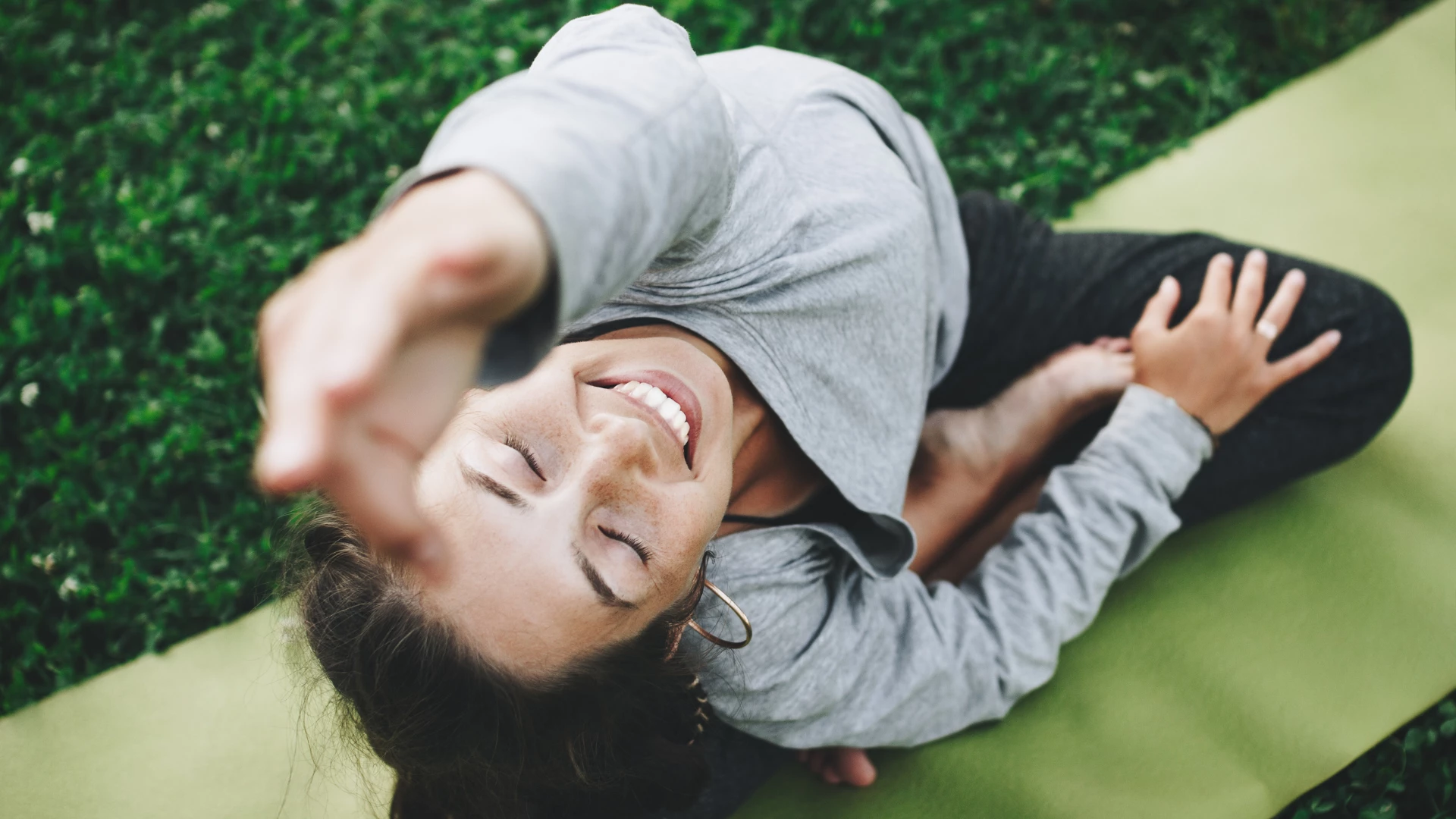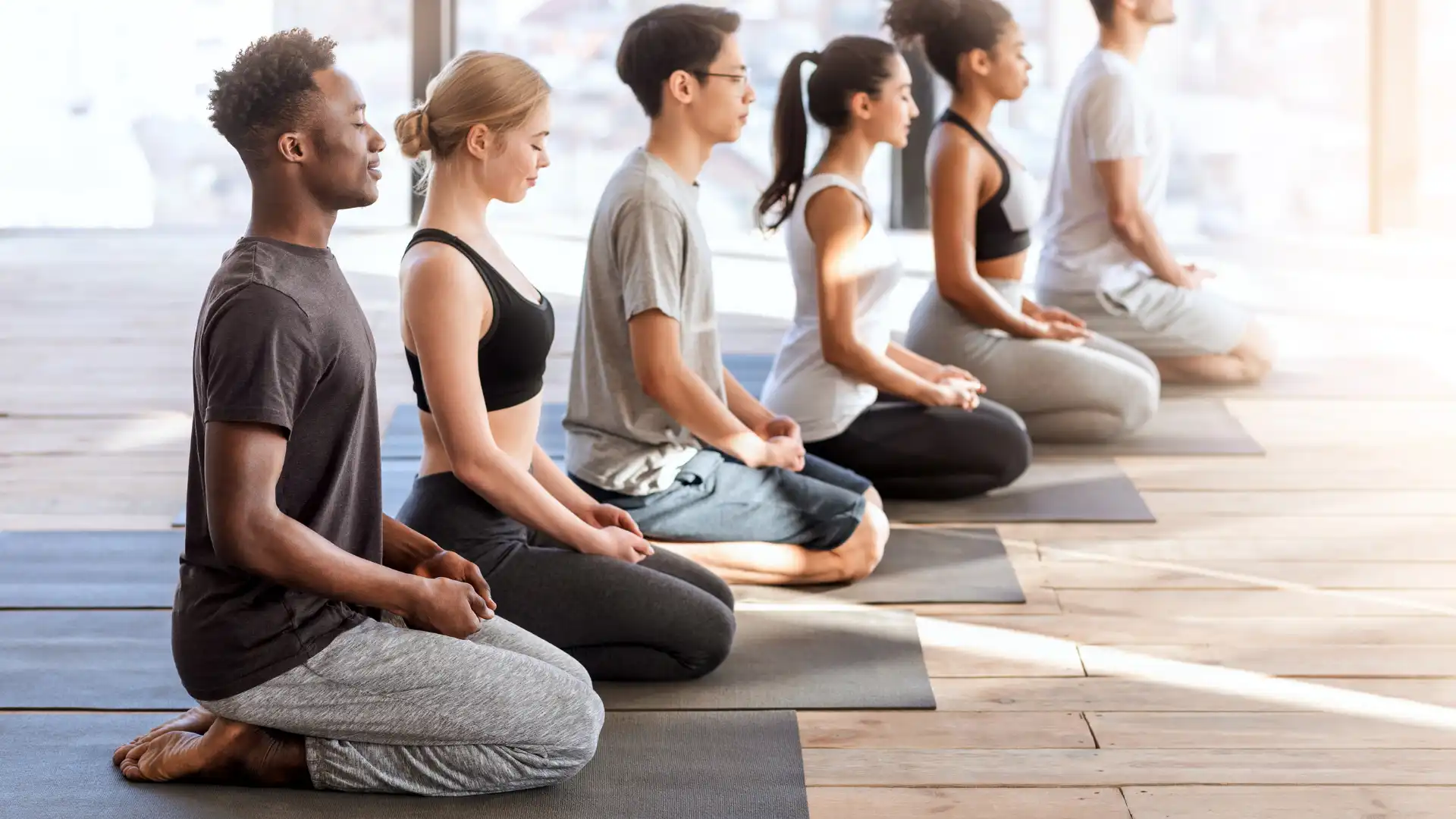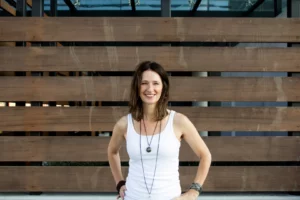Yoga’s 7 Yajnas: A Framework for Healthy Relationships

Relationships can be complicated. Especially for an anxious person.
As an anxious person, relationships were always hard for me. I’d vacillate between isolation and enmeshment. Both ends of the spectrum were motivated by intense worry about what other people thought of me.
I believed I had to be perfect before I could let anyone get close. I’d morph into whoever I thought people wanted me to be, which became an extreme source of suffering and more anxiety.
It’s interesting to note that the root of the word “heal” is “to make whole.” Feeling whole will not only heal anxiety, but it is also the remedy for the limiting beliefs, thoughts, and worries that can cause it to arise.
How to Heal Relationships: Heal Yourself
There are, of course, many factors and variables to our individual healing. However, relationships are universal and play a vital role in our wellbeing—no matter who we are. Things changed for me when I really got it that the relationship I have with myself is the most important one. This is true for each and every one of us. The essential relationship is the one we have with our own soul. The quality of this relationship will influence every other relationship we have, and it needs tending to every single day.
When we feel empty, anxiety rises.
When we feel complete, anxiety decreases.
But paradoxically, the quality of our relationship with ourselves, including our inner self, will always include the balancing of our relationships with others, and the world around us.
Yoga’s 7 Yajna Model for Healing
About nine years ago I discovered a beautiful model of healing. The 7 yajna model, rooted in yoga psychology, is one of the most ancient modalities for healing on the planet. Yajna, translated in English, means “relationships which nourish our soul.”
You may find you are balanced in one relationship, but not in another. The ongoing practice is to find, and maintain, balance in all areas of our relationships so that our soul is nourished, and our mind is steady. The 7 yajna model includes:
- Rituals: Daily practices bring us deeper into a relationship with our joy, and with who we truly are.
- Teachers: Teachers help us see and express our inner joy, calm, and truth. A teacher holds up a mirror for our own clarity and exploration.
- Tribe: Our tribe is a like-minded, positive community in which to share, connect, and grow in a safe and supportive environment.
- Friends: Friends (one to three good friends will do) are close souls who we count on during struggles, and celebrate with during triumph. Our friends see all of us and love us deeply no matter what.
- Partner: A partner makes us laugh, sees our soul, knows our favorite things, and reminds us how to believe in ourselves—even on days when we feel stuck, afraid, and unsure.
- Nature: In the great outdoors, we can ground our energy and connect to something bigger.
- Service: Giving to others allows us to shift our focus from the head to the heart. Serving others lets us experience the goodness of the universe through our interconnectedness with others, even people we don’t know well.

Think about your own life. Then follow these steps:
- Using the 7 yajna image above, score each of the 7 areas independently on a scale of 1 to 10, with 10 being high.
- Notice where you have low numbers, then choose and commit to one small action you can take, or a choice you can make that will help you increase that number.
By doing so, you are making a great investment in the nourishment of your soul, and therefore, your healing.
Reprinted with permission from JoyStonecoaching.com.

Joy Stone is an experienced Mindset and Spiritual Life Coach, Speaker, and Educator. Joy’s special style of coaching uniquely blends essential & life-empowering teachings from eastern and western psychology & philosophy. She is the founder of Soul Subscription, An Online Soul-Centered Group Coaching Experience. Her emphasis is on teaching people the empowering practice of self-care and personal responsibility.
She received her positive psychology education under Harvard Professor, Tal Ben-Shahar, Wholebeing Institute, and her yoga teaching certification under the Anusara style — a therapeutic application of yoga psychology and practice.
Read her new book- If I’m So Spiritual, Why Am I Still So Anxious?: The Soul Seeker’s Guide to Reclaim Your Joy.




